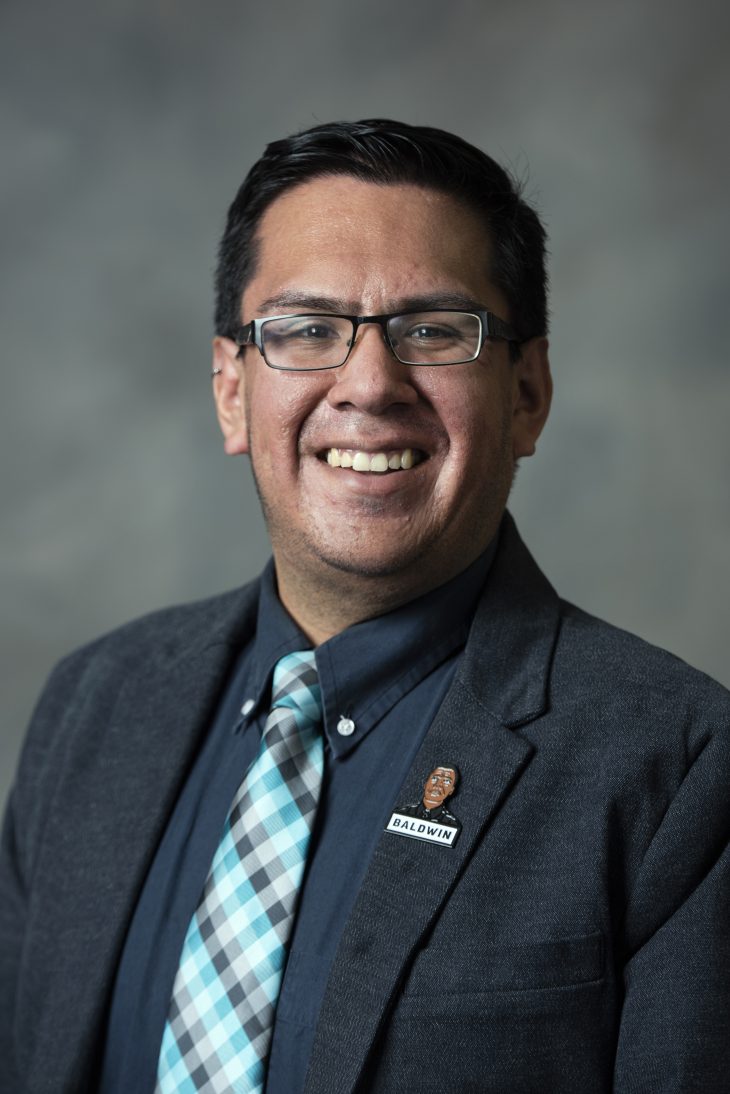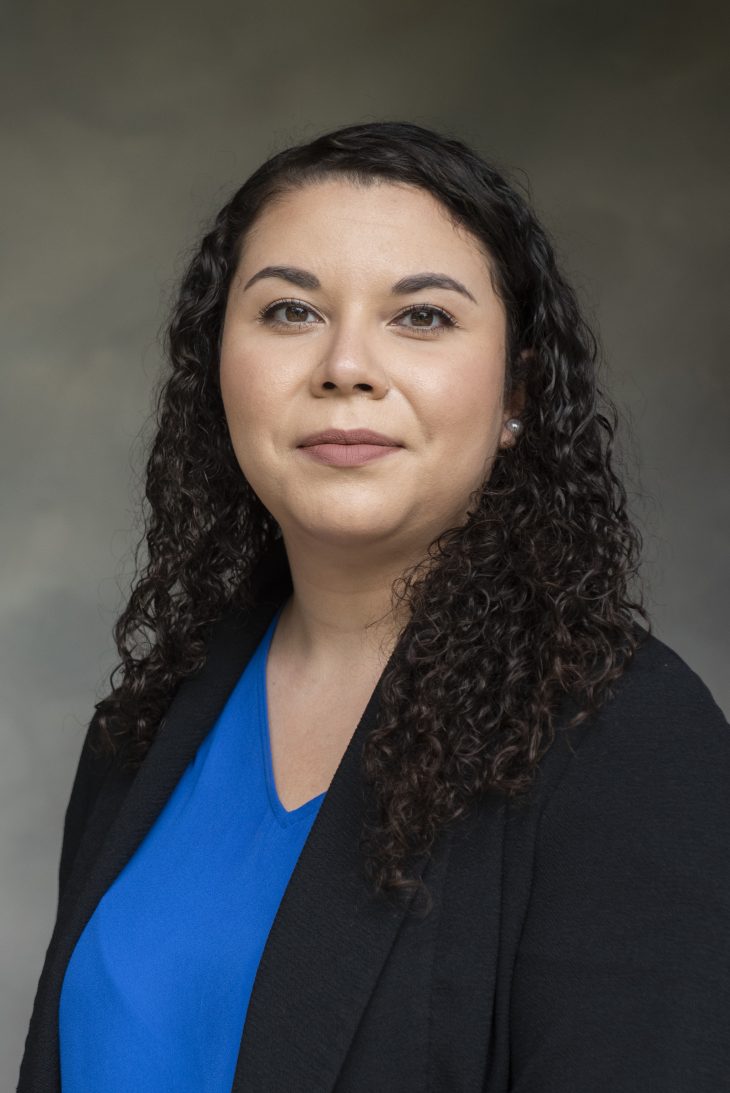LatinxEd has a fellowship for educational leaders honoring cultural roots and supports Latinx students in educational settings.
Elon student Taylor Duque ’27, a Communications Fellow and a scholar in the Odyssey Program, along with Luis Garay, director of the Gender and LGBTQIA Center and Kimberly Romero, director of undergraduate admissions for diversity and access at Elon, have been awarded fellowships from LatinxEd, an educational initiative that supports Latinx students and immigrant families in North Carolina aspiring to excel in higher education.
LatinxEd was founded in 2018 by Elain Townsend Utin and Ricky Hurtado with the mission of giving back to Latinx leadership and helping to create new leaders. North Carolina has the sixth-fastest growing Latinx population and the seventh-largest Deferred Action for Childhood Arrivals (DACA) population in the nation. Since 2022, LatinxEd has been located on Elon’s campus through a partnership with the Dr. Jo Watts Williams School of Education.
The fellowship is open to students, faculty and staff with Latinx backgrounds with the goal of building a trusted network of Latinx education leaders who have a shared vision and desire to work together to create a more inclusive and equitable education system in North Carolina. The organization wants the fellows to take the next step in their leadership journey while actively participating in workshops and events. Once they have completed the fellowship, the fellows can then continue advocating for the Latinx community. The fellows will also have a lasting network of educational leaders and mentors in North Carolina.


Duque, who is majoring in communication design, was nominated by her older sister Tyra Duque, who served as a John M. Belk Impact Fellow and interned with LatinxEd.
“I was excited when I received the news,” Taylor Duque said. “Bryan Mejia, the assistant fellowship manager at LatinxEd, personally called me to share that I had been accepted.”
Duque did not know what to expect but was very eager to attend the first workshop: “The workshops were incredibly informative and have changed my outlook on education in the Latinx community,” said Duque.
The workshops focused on the current and historical landscape of Latinx education in North Carolina, gave advocacy training designed to unite communities and spark positive change and created a space for expanding one’s self-trust and accountability on their leadership journey. The workshops are also a place for these upcoming leaders to further their professional development and lift their voices to a statewide platform.
“This has empowered me to make my voice heard and presence known, particularly in professional settings,” said Duque. “I plan to bring this sense of empowerment back to Elon, using it to navigate more effectively in professional, academic and leadership roles.”
LatinxEd helps discuss the conversation around educational inequities faced by Latinx communities in North Carolina. The organization also emphasizes the need for inclusive spaces that honor cultural identity and promote understanding among different communities. The fellowships are designed to support higher education leaders and students who are working to make an impact across the state, as well as those who are more focused on a local impact.
Garay was selected for his work across the state, while Romero was selected for educational equity work, she is doing in Alamance County.
“It felt great to see the work of educational equity that Latinx leaders are doing across the state, not just in higher education or not just in K through 12,” said Garay. “Really, I’m just one piece of it, but we are all a piece of it.”
The fellowship will support Romero’s work, the importance of connections, creative storytelling and self-care in building a supportive community.
“I think that, for me, one of the biggest takeaways to bring back to Elon will just be a renewed sense of hope or a renewed sense of energy towards doing diversity work, particularly in that access point,” said Romero.

The fellowship allows participants to gain a deeper understanding of leadership, cultural background and higher education through workshops and events.
“Through the fellowship, I gained a deeper understanding of my Latinx identity, especially by engaging with other Latinx people in a supportive environment,” said Duque.
The fellowship can help with an individual’s personal journey of finding community and connection through a fellowship program focused on educational issues affecting the Latinx population and highlighting the intersectionality of Latinx experiences.
“I was a little caught in the middle because I felt like I was a young professional, but I was also not a college student,” Romero said. “This is where the mentee becomes the mentor to the younger people in the fellowship.”
The fellowship highlights the value of attending conferences, networking with other fellows and incorporating these experiences into classes to inspire and inform students.
LatinxEd seeks to encourage members of the Latinx community to continue to strive for more and learn as they grow. The organization provides a place for students to consider how the fellowship could serve as an alternative experience for them; they have more in store for their future, they just need the resources.
For more information, there is a Latine Education Summit from Thursday, Sept. 12 to Friday, Sept. 13 at the Benton Convention Center in Winston-Salem, North Carolina. The summit is a statewide gathering of Latinx leaders and education champions committed to advancing Latinx success. During the two-day summit, participants will have networking opportunities with Latinx educators in North Carolina. The theme for this year is a timely call to action, “Aquí y Ahora” (Here and Now).



